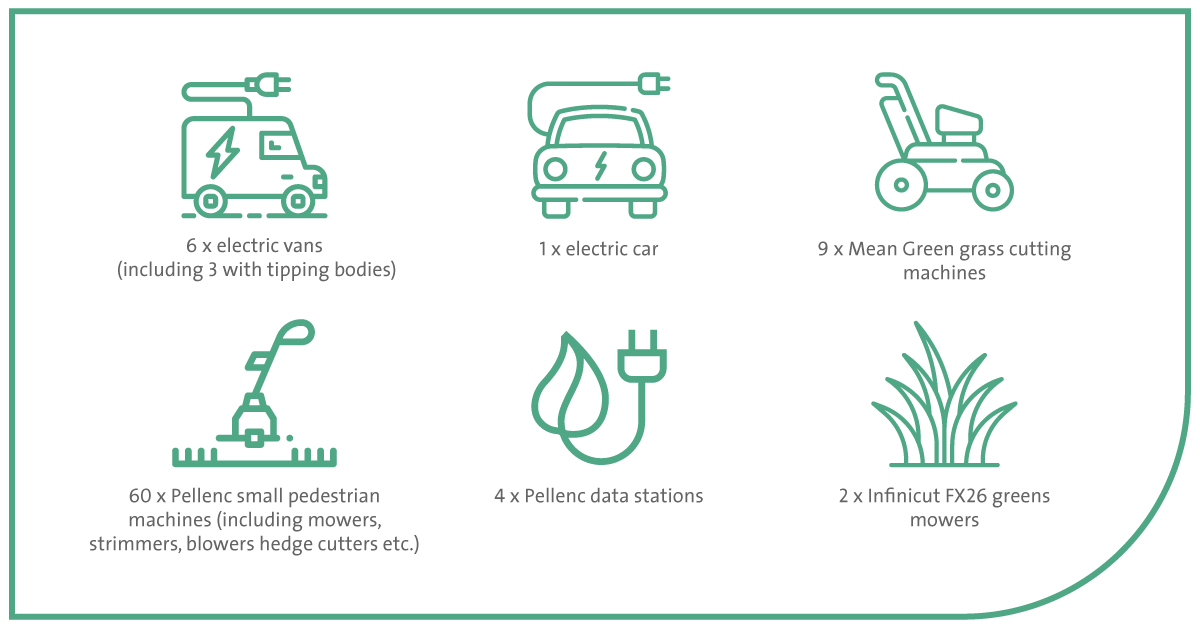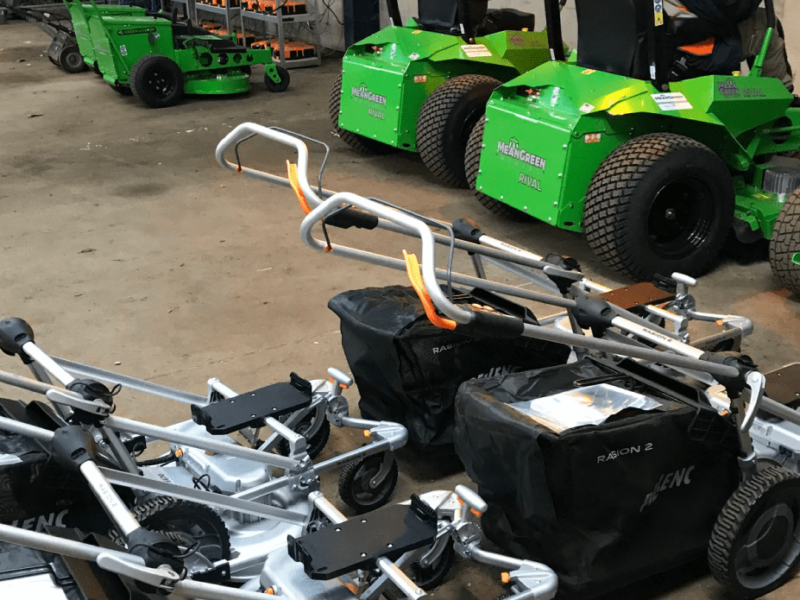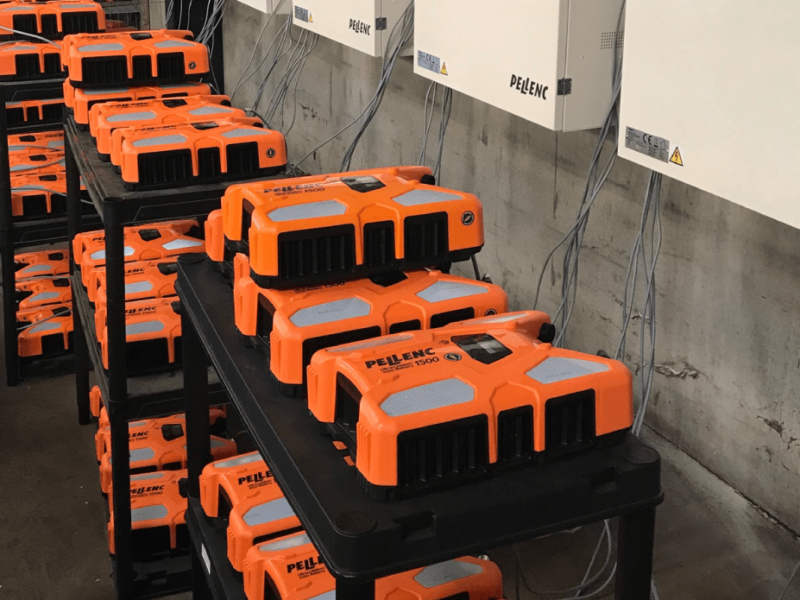Suggestions
Grounds Maintenance, Landscape Creation, Arboriculture, Sports Surfacing, Parks management, IOS Managing Safely Training, Ecology & Biodiversity, Grass cutting, Horticulture, Street Cleaning, Soft Landscaping, Hard Landscaping
Our Services
idverde provides a wide range of green services, including grounds maintenance, landscape creation, and advice services, to both private and public sectors across the UK.
Low-Carbon Services to Warwick District Council
With sustainability at the forefront of our business strategy, we have continued to expand our portfolio of low-carbon services to the local authority sector. April 2021 marked the beginning of a new grounds maintenance and street cleaning contract with Warwick District Council which is underpinned by the local authority’s carbon neutral and net zero targets.
With sustainability at the forefront of our business strategy, we have continued to expand our portfolio of low-carbon services to the local authority sector. April 2021 marked the beginning of a new grounds maintenance and street cleaning contract with Warwick District Council which is underpinned by the local authority’s carbon neutral and net zero targets. This contract alongside other similar idverde contracts is of significant importance within the context of climate change and global ambitions to limit global warming to 1.5 degrees. This contract is one of many large-scale idverde maintenance contracts which are now aligned with that global ambition and will understandably pave the way for what will become the new sustainable operating models of the future for this industry. Six months into the new contract and as COP26 takes place, we take a look at how our pioneering new approach is unfolding, what lessons have been learned already and whether there have been any measurable sustainability gains at this early stage.
A service solution for the future
The new sustainability focused approach to delivering this contract started with the electrification of the majority of vehicles and machinery that is used to deliver the grounds maintenance service. What was once a fossil fuel dominated fleet is now characterised by electric commercial vehicles and a suite of the very latest electric powered grass cutting machinery and smaller pedestrian equipment. The contract was resourced with £400,000+ worth of new battery powered equipment and machinery including:

In order to deploy our new fleet of electric vehicles and machines, our existing depot infrastructure had to be upgraded to ensure sufficient charging capacity would be available to power our assets. Vehicle charging points were installed alongside machinery charging points and substantial battery charging infrastructure in the form of four Pellenc data stations and racking for the dozens of batteries required to keep small equipment powered throughout the day.


Success and learning
The deployment of our new electric fleet and assets has been both successful on the ground and well received by our workforce. Key to this success has been our approach to overcoming the numerous challenges which occur when adopting new technology and ways of working. We also had to identify and define the limitations of our new machinery which has different strengths and weaknesses in comparison to conventional equipment. The procedures and processes underpinning our daily work also needed reviewing to ensure that our assets are fully powered and ready for use each day. We also trained our workforce in the use of new equipment to ensure that the potential benefits to them are actually realised. This includes small issues such as the correct fitting of backpack battery harnesses, which if not fitted correctly can result in health problems for the user.
Many of our operational colleagues have expressed their support for the shift away from combustion engine machines whereby they are no longer required to handle petrochemicals or protect themselves from traditionally high levels of noise created by combustion engines. Our new electric grass cutting machines and equipment have very low noise and vibration ratings which is an important contributing factor to overall colleague health and wellbeing.
Sustainability gains
As incumbent service providers of the grounds maintenance services to Warwick District Council, we have been able to appraise the impact of our new low-carbon service in comparison to the previous service which was delivered with conventional engine vehicles and machinery. Having analysed five months of contract data between April and August for the years 2020 and 2021 we know that:

idverde Sustainability Programme Manager, Dominic Knower comments:
Next Steps
As we continue to deliver services for Warwick District Council our focus will be on the continuous improvement of our sustainability performance and meeting the council’s net zero ambitions. Each year the grass cutting season offers the opportunity for improved efficiency and learning as we strive to leverage maximum benefits of the low-carbon technology that is in operation at Warwick. Aside from our work at Warwick we are exploring other strategies for reducing carbon emissions for hard-to-decarbonise fleet and this important work will inform how idverde as a business will play its role in addressing climate change and aligning our performance with global ambitions for net zero.
